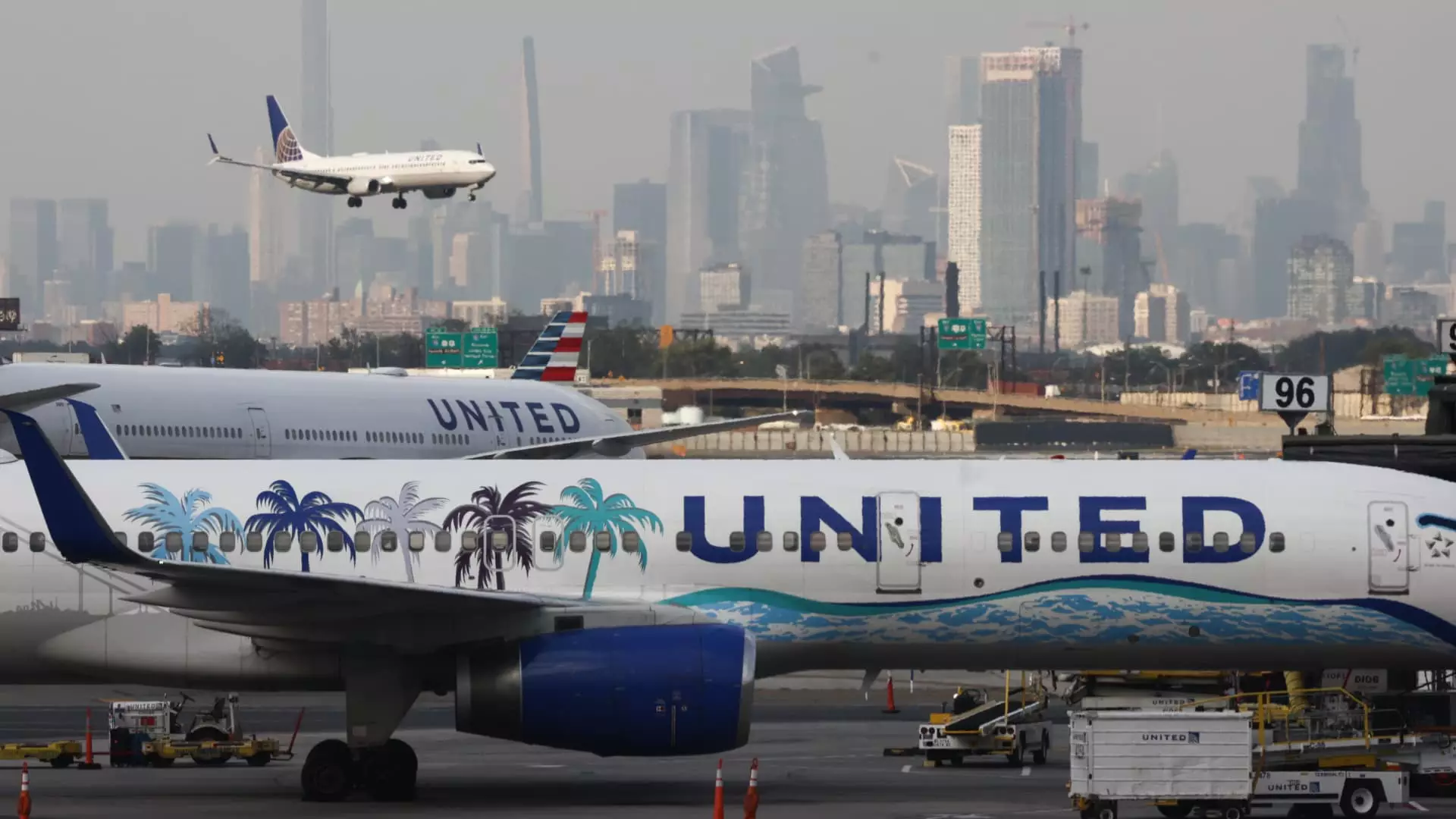United Airlines is embarking on an ambitious international expansion strategy in 2025, targeting a diverse array of destinations to attract travelers seeking fresh experiences. In an increasingly competitive airline market, United aims to distinguish itself by moving beyond traditional hubs and popular tourist hotspots, resonating with a growing subset of explorers who are yearning for unique, lesser-known locations. With service expansions slated to commence from May 2023, the airline plans to connect Newark, New Jersey, to an interesting roster of locations, including Faro in Portugal and Nuuk, Greenland.
This move is clearly a strategic pivot to capture the interest of seasoned travelers who have been to well-trodden attractions like Paris, Rome, and Tokyo. According to Patrick Quayle, United’s senior vice president of global network planning and alliances, the savvy traveler now seeks unique experiences, and United’s new routes will provide just that. As varied lifestyles and experiences become more valuable in travel, United acknowledges that tapping into undiscovered locations could offer a competitive edge over other airlines.
Among the most notable new routes is the introduction of service to Palermo, Sicily, starting May 21, and Faro, Portugal, launching May 16. These routes will operate several times a week, further enriching United’s existing options in southern Europe. Additionally, the airline will initiate flights to Bilbao, Spain, and Madeira Island, tapping into the allure of the Iberian Peninsula and beyond.
Launching a direct flight to Nuuk, Greenland, represents another impressive milestone, moving forward with service beginning June 14. The combination of these new routes reflects United’s commitment to innovation in its flight options, something that sets it apart from many domestic and international competitors who often follow more conventional paths in route planning.
United’s broader vision leans toward “skating where the puck is going,” an adage highlighting the airline’s strategy of anticipating travel trends instead of simply reacting to them. This approach encourages adaptability, which is crucial in a travel landscape that can shift abruptly. The airline is also planning direct flights to Dakar, Senegal, and Ulaanbaatar, Mongolia, showcasing not only an eagerness for exploration but also an understanding of the growing importance of global connectivity in fostering cultural experiences.
Quayle asserts that a well-rounded portfolio of destinations appeals to the modern traveler, and more unique flight options could potentially enhance customer loyalty and revenue through premium credit card sign-ups and increased bookings. The correlation between unique destination offerings and consumer spending is significant in a post-pandemic world that sees a surge in travel appreciation.
While United is enthusiastically embracing new potential, it is also wise to consider past missteps. The airline previously suspended its service to Bergen, Norway, due to insufficient demand, underscoring the precarious balance between ambition and pragmatism. Understanding that not every route will succeed, United is prepared to adjust its strategy based on customer responses and market dynamics.
This acknowledgment opens the door for continuous evaluation and evolution of United’s network. It is important to strike a fluid relationship between innovation and practicality, ensuring that consumer desires remain at the forefront of their operation plans.
As United Airlines prepares for its expansion into these varied international markets, the potential benefits are clear. By venturing into less conventional destinations, the airline not only enriches its service offerings but positions itself as a forward-thinking leader in the aviation industry. However, the challenge will lie in executing this strategy effectively, ensuring operational efficiency and aligning with consumer expectations as travel preferences continue to evolve.
Ultimately, United’s proactive approach highlights its desire to capture the essence of modern travel—adventurous, diverse, and unique. This combination of innovation and customer-centric strategy could pave the way for a transformative period in airline service, opening the skies to both everyday travelers and intrepid explorers alike, while fostering a stronger connection between people and cultures around the globe.


Leave a Reply